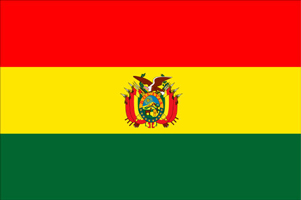Bolivian Council on Sustainable Development (Ministry for the Environment and Water) - former
|
Contact Address: Ministerio de Medio Ambiente y Agua Capitan Castrillo 434 entre 20 de Octubre y Héroes del Acre Zona San Pedro Website: http://www.mmaya.gob.bo/ (Ministry for the Environment & Water) |
|
|
Mission Statement ‘The Council was defined as an instrument to promote processes of participation, coordination and consensus building, and also to carry out and ensure the continuity of the principles and objectives of the sustainable development model. During instances of public dialogue and debate, the Council was to serve as the institution that forged agreement between the state, civil society, and international aid agencies on sustainable development policies and strategic programs.’ The Council’s main functions were:
|
Composition and Membership The [original] Bolivian Council was established in 1996 and recognised by law in 1997. President: Minister for Sustainable Development. The original Council was made up of an assembly, an executive committee, and an executive secretary. Members of the assembly included representatives from the central government; parliament; NGOs; academia; and umbrella organizations such as Bolivia’s Central Labor Union, the Union of Rural Workers, the Episcopal Confederation, and the Bolivian Association of Private Enterprises; the media; the armed forces; and international aid agencies. Two representatives of the executive branch and four representatives of civil society formed the executive committee. |
|
Role and Functions
|

